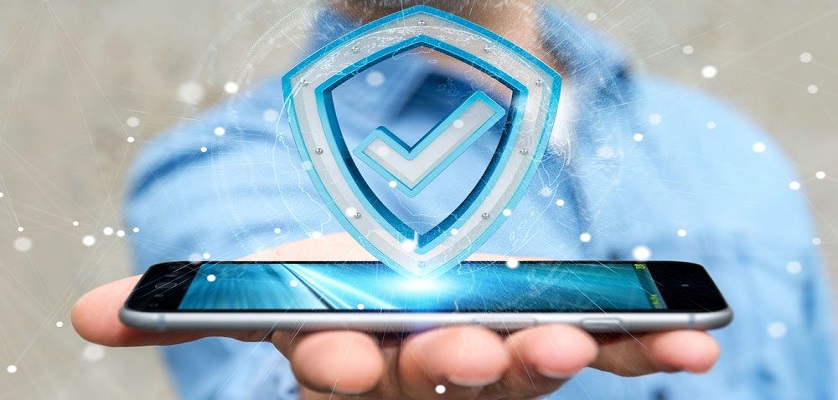In today’s digital age, our life has become completely dependent on technology. From smartphones to laptops and smart appliances, we are constantly connected to the digital world. However, this convenience comes with a price – the risk of cyber threats. To mitigate these risks and protect your devices and personal information, it’s crucial to use security software. In this article, we will discuss five software solutions that can significantly enhance the security of your devices.
Antivirus Software
Antivirus software is one of the fundamental pillars of device security. It protects your device from various malware, including viruses, worms, Trojans, and ransomware. Some of the leading antivirus software options on the market include Norton, McAfee, Bitdefender, and Avast.
These antivirus programs work by scanning your device for malicious software and blocking or removing it. They also offer real-time protection, monitoring incoming files and web traffic for potential threats. Additionally, many antivirus programs come with features such as firewall protection, email filtering, and anti-phishing tools to safeguard your online activities.
We should keep updating our antivirus regularly because, in today’s era, new threats keep emerging, due to which we should keep our antivirus updated. Many antivirus programs offer automatic updates to keep your device protected against the latest threats.
Virtual Private Network (VPN) Software
A VPN is a powerful tool for enhancing your device’s security, especially when connecting to the internet. VPN software, such as ExpressVPN, NordVPN, and CyberGhost, encrypts your internet connection and routes it through a secure server. This encryption makes it extremely difficult for hackers to intercept your data, providing a secure and private online experience.
VPNs are particularly useful when using public Wi-Fi networks, which are often less secure and susceptible to cyberattacks. By using a VPN, you can ensure that your sensitive information, such as login credentials and financial data, remains protected even on untrusted networks.
Furthermore, a VPN can also help you bypass geographic restrictions and access content that might be blocked in your region. However, it’s essential to choose a reputable VPN service to ensure your data is handled responsibly.
Password Management Software
We should make our passwords difficult so that no cybercriminal can take advantage of them. Many people use easily guessable passwords or use the same password for multiple accounts, making them susceptible to breaches. Password management software like LastPass, Dashlane, and 1Password can help you create and manage strong, unique passwords for all your accounts.
These tools store your login information in a secure vault and automatically fill in your passwords when needed. They also generate complex, random passwords for you, eliminating the need to remember them. This approach ensures that even if one of your accounts is compromised, the rest of your accounts remain secure.
Furthermore, password management software often includes features like two-factor authentication (2FA) support, which adds an extra layer of security to your accounts. With 2FA, even if someone knows your password, they won’t be able to access your account without a second authentication method, such as a text message code or a biometric scan.
Firewall Software
The firewall allows and blocks data packets as per its prescribed security rules, due to which it protects us from the threats coming from the Internet and also monitors incoming and outgoing traffic. While most modern operating systems come with built-in firewalls, you can also enhance your security with third-party firewall software.
One of the notable firewall solutions is ZoneAlarm. ZoneAlarm offers both free and paid versions, with advanced features like identity theft protection and anti-phishing. It provides granular control over your device’s network connections, allowing you to configure rules for specific applications and processes.
Firewalls are particularly useful in preventing unauthorized access to your computer and protecting against malware that attempts to communicate with external servers. By blocking suspicious incoming and outgoing traffic, firewalls add an additional layer of security to your device.
Data Encryption Software
Data encryption software is essential for protecting your sensitive information, both at rest and in transit. Encryption ensures that even if your device falls into the wrong hands, the data remains unreadable without the encryption key. Popular encryption software includes VeraCrypt, BitLocker (for Windows users), and FileVault (for macOS users).
These tools help you encrypt data and protect your drives. When you store files in an encrypted container, they are inaccessible without the correct password or encryption key. This is especially useful for safeguarding confidential documents or personal data.
In addition to protecting data at rest, encryption software also plays a crucial role in securing data during transmission. Secure Sockets Layer (SSL) and Transport Layer Security (TLS) are encryption protocols used to protect data when you’re browsing the web, sending emails, or using online services. Many web browsers and email clients automatically enable SSL/TLS encryption, ensuring that your data is secure when communicating with websites and servers.
Conclusion
the digital landscape is fraught with cyber threats, and the security of your devices should be a top priority. The five software solutions discussed in this article – antivirus software, VPNs, password management software, firewalls, and data encryption software – are essential tools for enhancing your device’s security. By using a combination of these tools and staying vigilant about online security best practices, you can significantly reduce the risk of falling victim to cyberattacks and protect your digital life. Remember that cybersecurity is an ongoing effort, and regularly updating and maintaining your security software is key to staying one step ahead of cybercriminals.

